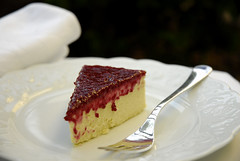
Americans are eating more spices, often in the forms of blends and rubs, than ever before. "We are living in a new golden age of spice," says Michael Krondl, a chef, food writer, teacher and culinary historian. Within the spices, dried ground black pepper is very popular in US and last year americans consumed more than 110 million pounds of it. Black pepper is one of the most common spices in European cuisine and its descendants, and may be found on nearly every dinner table in some parts of the world, alongside table salt.
Black pepper is a flowering vine in the family Piperaceae, cultivated for its fruit, which is dried and used as a spice and seasoning. The plant is native to South India and is extensively cultivated there and elsewhere in tropical regions. Vietnam has recently become the world's largest producer and exporter of pepper, other major producers include Indonesia, India and Brazil. Black pepper is produced from the still-green unripe berries of the pepper plant. The berries are cooked briefly in hot water, to clean and prepare them for drying. The berries are dried in the sun or by machine for several days, during which the fruit around the seed shrinks and darkens into a thin, wrinkled black layer, the result of a fungal reaction. White pepper consists of the seed only, with the outer fruit removed. Green pepper, is also made from the unripe berries but treated in a manner that retains the green colour. Pink pepper or red pepper consists of ripe red pepper berries preserved in brine and vinegar or they can be dried using the same colour-preserving techniques used to produce green pepper. Pink pepper from Piper nigrum is distinct from the more-common dried "pink peppercorns", which are the fruits of a plant from a different family, the Peruvian pepper tree, and the Brazilian pepper tree.
Too much of it can be irritant of the intestine wall, but some black pepper is good for you! It stimulates the taste buds in such a way that an alert is sent to to the stomach to increase hydrochloric acid secretion, thereby improving digestion. Hydrochloric acid is necessary for the digestion of proteins and other food components in the stomach. When the body's production of hydrochloric acid is insufficient, food may sit in the stomach for an extended period of time, leading to heartburn or indigestion, or it may pass into the intestines, where it can be used as a food source for unfriendly gut bacteria, whose activities produce gas, irritation, and/or diarrhea or constipation. Black pepper also has diaphoretic (promotes sweating), and diuretic (promotes urination) properties and has demonstrated impressive antioxidant and antibacterial effects. Not only does black pepper help you derive the most benefit from your food, the outer layer of the peppercorn stimulates the breakdown of fat cells, keeping you slim while giving you energy to burn.





1 comment:
Genial brief and this fill someone in on helped me alot in my college assignement. Thank you on your information.
Post a Comment